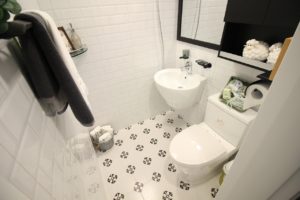Estamos felizes! Using Ser, Estar, and Ficar in Portuguese
In this post we’ll look at Portuguese ser, estar, and ficar. These very common verbs all mean be, but they are used in different ways. First, we’ll look at ser. We’ll see its forms and learn how it’s used. Next we’ll see estar, which is used to express more temporary qualities. Finally, we’ll look at ficar, which can mean say or remain, but which is also used to express location.
Ser
Let’s start with ser.
Forms of ser
Ser is an irregular verb in the present tense:
- eu sou
I am - ele/ela/você é
he is, she is; you are - nós somos
we are - vós sois
you (pl) are - eles/elas/vocês são
they are; you (pl) are
Uses of ser
Ser is used to identify things.
- O que é isso?
What is this? - É um livro.
It’s a book.
Ser is also used with permanent qualities or characteristics.
- A porta é grande.
The door is big. - Maria é alta.
Maria is tall.
It’s used with professions, occupations, and nationalities.
- Sr. Pedro é professor.
Mr. Pedro is a teacher. - A Dona Mariana é doutora.
Ms. Mariana is a doctor. - Eu sou americana.
I’m American. - Sou doutora.
I’m a doctor.
Ser is used to talk about possession and to give the time.
- O livro é meu.
That book is mine. - É uma hora.
It’s one o’clock.
And ser is also used to talk about location when that location is fixed.
- A Itália é na Europa.
Italy is in Europe. - O escritório é na Rua Dutra.
The office is on Rua Dutra.
Preterite and Imperfect of ser
Here are the preterite forms of ser.
- eu fui
I was - ele/ela/você foi
he was, she was; you were - nós fomos
we were - vós fostes
you (pl) were - eles/elas/vocês foram
they were; you (pl) were
Here are the imperfect forms of ser.
- eu era
I was - ele/ela/você era
he was, she was; you were - nós éramos
we were - vós éreis
you (pl) were - eles/elas/vocês eram
they were; you (pl) were
Estar
Estar also means to be, but it’s used in different situations.
Forms of estar
First let’s look at the conjugation.
- eu estou
I am - ele/ela/você está
he is, she is; you are - nós estamos
we are - vós estais
you (pl) are - eles/elas/vocês estão
they are; you (pl) are
Uses of estar
Estar is used to express temporary qualities, or qualities that vary.
- A porta está aberta.
The door is open. - Maria está doente.
Maria is sick. - Estou doente.
I’m sick.
It’s used to talk about the weather.
- está quente.
It’s hot. - Está muito frio hoje.
It’s very cold today.
Estar is also used to talk about locations that vary, in other words the locations of things that can move.
- O lápis está na mesa.
The pencil is on the table. - O carro está na Rua Dutra.
The car is on Rua Dutra.
Preterite and Imperfect of estar
Here are the preterite forms of estar.
- eu estive
I was - ele/ela/você esteve
he was, she was; you were - nós estivemos
we were - vós estivestes
you (pl) were - eles/elas/vocês estiveram
they were; you (pl) were
Here are the imperfect forms of estar.
- eu estava
I was - ele/ela/você estava
he was, she was; you were - nós estávamos
we were - vós estáveis
you (pl) were - eles/elas/vocês estavam
they were; you (pl) were
Ficar
Ficar is another verb that’s often used where English uses be, especially when you’re talking about location.
Forms of ficar
Let’s look at the forms first. In the present, ficar is conjugated as follows:
- eu fico
- você fica
- ele / ela fica
- nós ficamos
- vocês ficam
- eles/ elas ficam
In the preterite, ficar is:
- eu fiquei
- você ficou
- ele/ ela ficou
- nos ficamos
- vocês ficaram
- eles / elas ficaram
And in the imperfect, ficar is:
- eu ficava
- você ficava
- ele / ela ficava
- nos ficávamos
- vocês ficavam
- eles/ elas ficavam
Meanings of ficar
Ficar has a range of meanings, and can be translated as to stay, to remain, to become, or to get.
- Eu vou ficar aqui fora, enquanto você vai à farmácia.
I’ll stay outside while you go in the pharmacy. - A família dela voltou para casa, mas ela ficou mais uma semana de ferias.
Her family went back home, but she remained another week on vacation. - Meus filhos ficaram doentes depois de passarem horas brincando na chuva.
My kids got sick after spending hours playing in the rain. - O preço da gasolina ficou mais caro depois da guerra.
The price of gas became more expensive after the war. - Não fique triste!
Don’t be sad. - “Fique”, disse o dono do cachorro.
Stay, said the dog owner. - Quando vamos ao Rio de Janeiro, sempre ficamos em uma pousada.
When we go to Rio de Janeiro, we always stay at a Bed & Breakfast. - Neste calor voce vai ficar com calor se corer muito.
In this heat, you’ll get hot if you run around. - Ela ficou gravida em abril.
She got pregnant in April.
Uses of ficar as be
Ficar can be used to express temporary, changeable states, just like estar.
- Fico/Estou feliz com a notícia.
I am happy with the news.
Ficar is often used to express location, both fixed (like ser) and variable (like estar).
- Onde fica o metrô mais próximo?
Where’s the nearest subway? - Onde fica / é o seu escritório?
Where is your office? - Meu escritório fica / é na Rua Augusta.
My office is on Rua Augusta. - Os garfos ficam / estão na gaveta da direita.
The forks are in the drawer to the right.
In Brazil, ficar is typically used to express location instead of ser or estar. Here are several more examples of ficar expressing location.
- Onde fica a sua casa?
Where’s your house? - A nossa casa fica bem perto daqui.
Our house is very close from here. - Onde fica o supermercado?
Where’s the supermarket? - supermecado fica a duas quadras daqui.
The supermarket is two blocks from here. - Onde fica a Ilha grande?
Where’s Ilha Grande? - O posto de gasolina mais proximo fica a duas quadras daqui.
The nearest gas station is two blocks from here. - Os meus oculos ficam na mesa, ao lado do sofa.
My glasses are on the table next to the couch. - O liquidificador fica no armario da cozinha.
The blender is in the kitchen cupboard. - Onde ficam as criancas depois da escola?
Where are the children after school? - As criancas ficam com os meus pais.
The children are with my parents. - Todas as tardes, a mãe fica no portão esperando o filho chegar da escola.
Every afternoon, the mother is by the gate waiting for her son to get home from school.
Idioms with ficar
Ficar is used a few common idiomatic expressions: ficar de fogo to get drunk, ficar com to hook up with, ficar de cama to get sick, ficar de cara feia to have a long face, ficar numa boa to relax, to chill.
- Ele ficou de fogo na festa de casamento.
He got drunk at the wedding party. - Amanda ficou com Vinicíus na festa.
Amanda haoked up with Vinicius at the party. - Eu fiquei de cama com febre e dor de cabeça.
I was sick with a fever and a sore throat. - So porque estou atrasada?
What’s with the long face? Just because I’m late? - Fui para praia e fiquei numa boa.
I went to the beach and relaxed.
Quiz
A. Replace the verbs ser or estar with ficar in the following examples.
- Onde é a escola? Where is the school?
- Quantas horas por dia voce está no trabalho? How many hours a day are you at work?
- Quero guardar a tesoura mas nao sei onde estava? I wanted to put the scissors away, but I don’t know where they were?
- Onde são os museus mais famosos do mundo? Where are the most famous museums in the world?
- O mouse está sempre ao lado direito do meu computador. The mouse is always on the right of my computer.
Answers: 1. fica; 2. fica; 3. ficava; 4. ficam; 5. fica
B. Complete the English with the best translation of the verb ficar in the sentences below.
- Eu fiquei feliz com as suas notas.
I _____ happy with your grades. - As crianças nunca ficam quietas no recreio.
The children _____ never quiet during recess. - Ele sempre fica resfriado no inverno.
He always _____ a cold in winter. - Ele ficou trinta anos no mesmo emprego.
He _____ thirty years in the same job. - Você já ficou em algum hotel cinco estrelas?
Have you ever _____ at a five-star hotel?
Answers: 1. was; 2. remain/stay/are; 3. gets; 4. remained, stayed; 5. stayed
Get on the road to speaking Portuguese with the Language Garage!
We hope you’ve enjoyed learning about Portuguese ser, estar, and ficar. If you’d like to learn more:
- Create a free Language Garage account to access tons of Portuguese vocabulary, grammar, and culture.
- Follow us on Facebook, LinkedIn, BlueSky, Twitter, Threads, Instagram, or Pinterest. We publish lots of Portuguese vocabulary, grammar, and culture notes, so it’s a great way to pick up some new vocabulary and practice.
- Check out our other posts on Portuguese language, culture, and more.
- Enroll in affordable, flexible, and personalized private online Portuguese lessons or sign up for a small group online Portuguese class.






